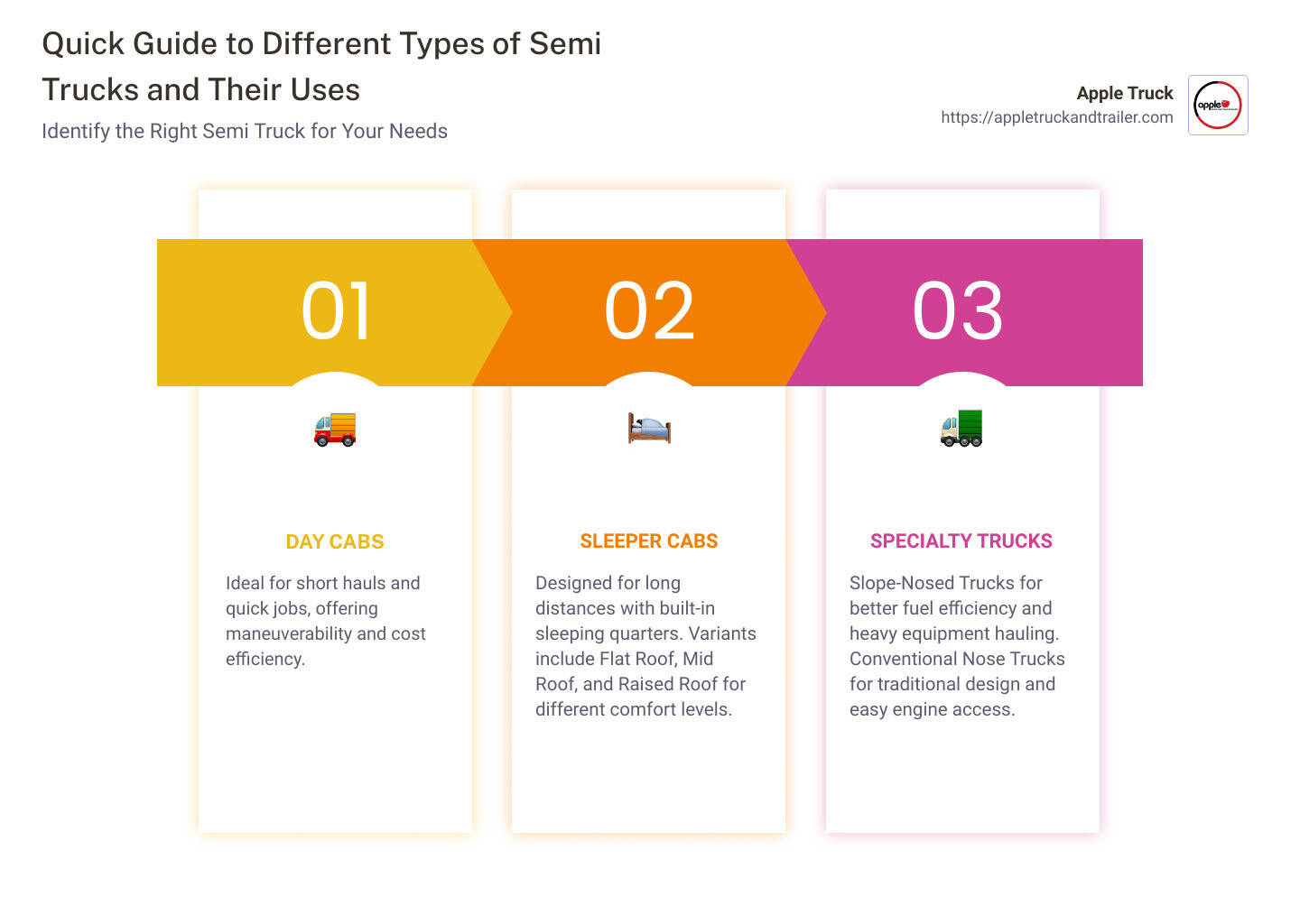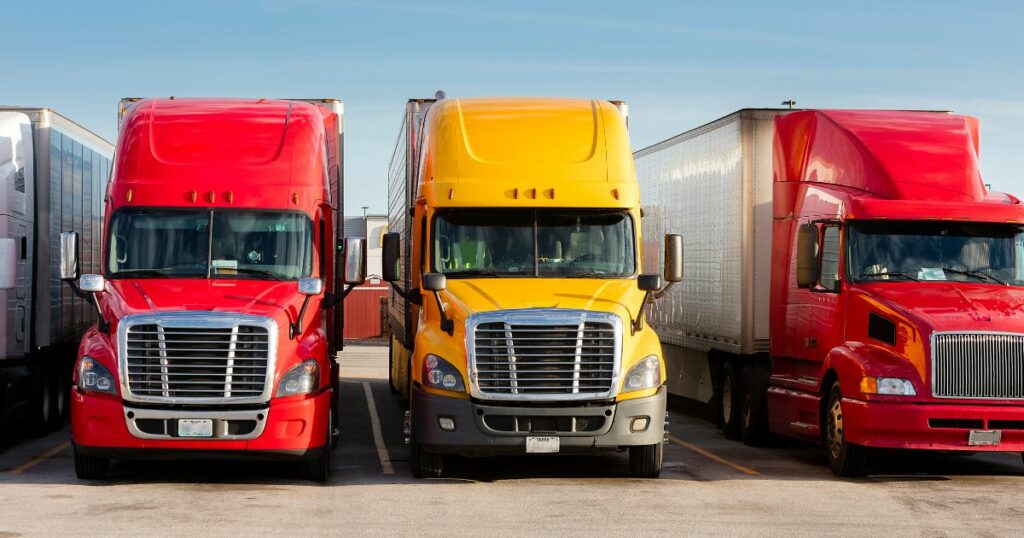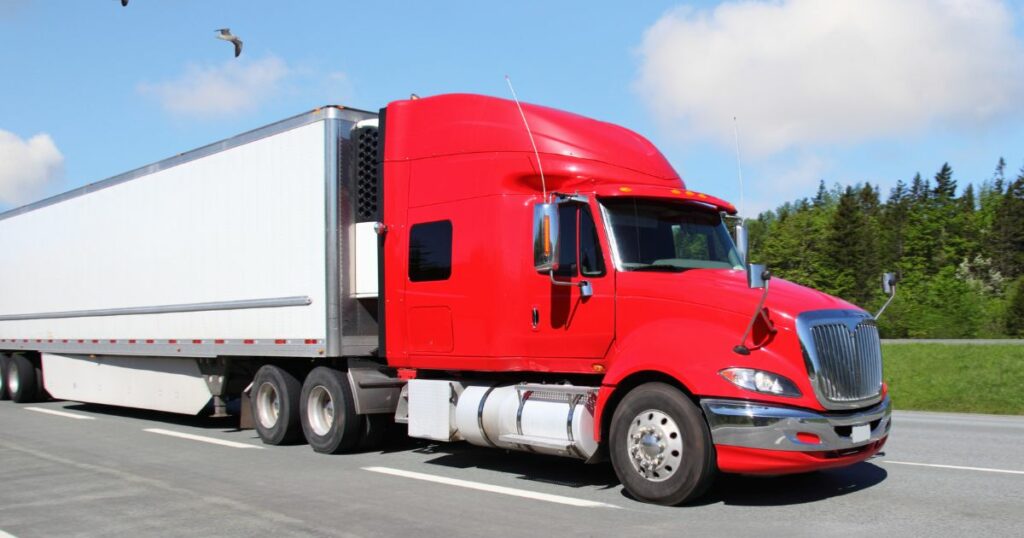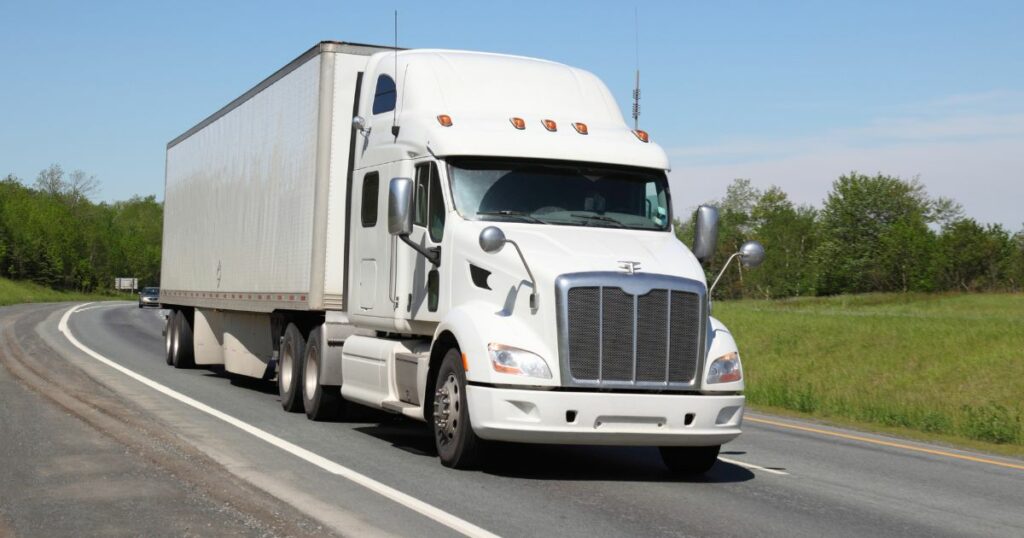If you’re a small to medium-sized business owner in Massachusetts or surrounding areas, looking for semi-trucks, or even an individual seeking reliable storage solutions, understanding the diverse world of semi trucks is crucial. These powerful vehicles are designed to meet a wide range of commercial transportation and storage needs, making them indispensable in logistics, construction, and many other industries.
Semi trucks are commonly referred to as Tractor-Trailers or Big Rigs, depending on their configuration and job they’re designed to do. Whether you’re moving heavy construction machinery, delivering perishable foods across states, or needing a storage solution during a big move, there’s a semi truck configured for your precise requirement.
What are the Different Kinds of Semi Trucks?
There are Day Cabs for short hauls, Sleeper Cabs for long-distance routes with variations like Flat Roof, Mid Roof, and Raised Roof Sleepers for different levels of comfort.
For those hauling heavy or unique loads, Slope-Nosed and Conventional Nose Trucks offer options for maneuverability and engine access. Knowing which type fits your needs saves time and money.
Let’s make it easy. Below is a brief infographic detailing the most common types of semi trucks and what they’re best used for. It’s a quick way to identify which truck might meet your needs before you dive deeper into specifics.

Choosing the right type of semi truck is not just about the immediate job. It’s about ensuring efficiency, reliability, and cost-effectiveness in the long run. Whether it’s the maneuverable slope-nosed trucks for heavy loads or the spacious raised roof sleepers for cross-country hauls, every business has its ideal match.
Table of Contents
Understanding Semi Trucks
When we talk about transport and logistics, semi trucks play a pivotal role. But what exactly are semi trucks, and how do they work? Let’s break it down into simpler terms.
Semi-Trailer Truck
A semi-trailer truck is more than just a vehicle; it’s a powerful tool for moving goods across vast distances. Picture it as a giant moving part that consists of two main pieces: the tractor unit and the semi-trailer. The tractor is the front part with the engine and the driver’s cabin. The semi-trailer is the back part where the goods are loaded. The semi-trailer doesn’t move on its own; it’s attached to and supported by the tractor, creating a seamless, efficient transport machine.
Tractor Unit
The tractor unit is the heart of the semi-trailer truck. It houses the engine, which powers the vehicle, and the cab, where the driver controls the truck. This part is crucial because it not only propels the truck forward but also bears the weight of the semi-trailer and its cargo. Tractor units are designed to attach to different types of semi-trailers, making them versatile tools in the transport industry.
Semi-Trailers
Semi-trailers are the cargo-carrying part of the equation. They come in various shapes and sizes, each designed for specific types of goods. For instance, some semi-trailers are enclosed to protect goods from the elements, while others are open, allowing for the transport of oversized items. The design of a semi-trailer is clever; it only has wheels at the back end, relying on the tractor unit to support the front. This design makes it easier to maneuver and more efficient in terms of space and fuel consumption.
In Summary:
Understanding the different components of semi trucks – the tractor unit and the semi-trailers – is key to appreciating their role in our daily lives. These trucks transport nearly everything we use, from the food we eat to the clothes we wear. The next time you see a semi truck on the highway, you’ll know exactly how it works and the vital role it plays in keeping our world moving.
Remember that the choice of the right semi truck and trailer combination depends on the cargo, the distance, and specific transport needs. Whether it’s a day cab for quick local deliveries or a sleeper cab for long-haul journeys, each type of semi truck serves a unique purpose in the logistics chain.
Stay tuned as we delve deeper into the different kinds of semi trucks and how to select the perfect one for your needs.
Types of Semi Trucks

Exploring semi trucks reveals a fascinating array of vehicles, each designed with specific jobs and routes in mind. Whether it’s navigating through tight city streets or crossing the country, understanding the different kinds of semi trucks can help you make informed decisions for your trucking needs.
Day Cabs
Quick Jobs, Short Routes
Day cabs are the go-to choice for drivers focusing on local or regional deliveries. These trucks do not have a sleeper area, making them lighter and more maneuverable for day-to-day operations. Ideal for routes that can be completed within a single day, day cabs offer a practical solution for quick turnarounds and frequent stops.
Sleeper Cabs
Long Hauls, Built-in Sleeping Quarters
For journeys that stretch over several days, sleeper cabs come into play. These trucks are equipped with sleeping quarters, allowing drivers to rest comfortably without leaving the vehicle. Sleeper cabs are divided into three main types, each offering different levels of comfort and space.
Flat Roof Sleeper
Least Headroom, Economical
Flat roof sleepers are the most basic form of sleeper cab, providing essential sleeping space with limited headroom. They are a cost-effective option for drivers who need a place to rest but do not require additional amenities.
Mid-Roof Sleeper
More Headroom, Additional Amenities
Stepping up in comfort, mid-roof sleepers offer more headroom and often come with extra features such as storage compartments and entertainment systems. These cabs strike a balance between comfort and affordability, making them a popular choice for many long-haul drivers.
Raised Roof Sleeper
Maximum Space, Premium Comfort
For the ultimate in driver comfort, raised roof sleepers are the top-tier option. These cabs provide ample headroom, luxurious amenities, and often feature side-storage towers and premium sound systems. Drivers who spend weeks on the road will find these cabs to be a home away from home.
Slope-Nosed Trucks
Heavy Equipment Hauling, Better Fuel Efficiency
Slope-nosed trucks, with their aerodynamic design, are built to handle heavy loads and longer trailers. The short, rounded front allows for better fuel efficiency and the ability to endure bumpy roads, making them ideal for transporting heavy equipment across challenging terrains.
Conventional Nose Trucks
Easy Engine Access, Traditional Design
Conventional nose trucks feature a classic design with the engine located in front of the cab. This setup provides easy access to the engine for maintenance and repairs. Despite their lower fuel mileage compared to slope-nosed trucks, they remain a favorite for their durability and ease of service.
In conclusion, selecting the right semi truck depends on your specific needs, whether it’s a day cab for local deliveries or a sleeper cab for cross-country hauls. Consider the type of cargo, the distance of your routes, and the level of comfort you desire when choosing between the different kinds of semi trucks. With a clear understanding of each option, you can ensure your trucking operations run smoothly and efficiently.
Types of Trailers for Semi Trucks

Choosing the right trailer is as crucial as selecting the appropriate semi truck. Each trailer type serves a unique purpose, catering to specific cargo needs and transport conditions. Let’s explore the different kinds of trailers available and their ideal uses.
Box or Dry Van Trucks
Box or Dry Van Trucks are the most common trailers on the road. They’re fully enclosed, protecting non-perishable goods from weather and road debris. These trailers are versatile, making them suitable for a wide range of cargo, including:
- Clothing and household goods
- Building products
- Non-perishable food and beverages
Due to their enclosed nature, loading and unloading typically happen through the rear doors, often requiring a loading dock.
Dump or Tipper Commercial Trucks
Dump or Tipper Trucks are designed for easy unloading of materials. They use hydraulics to lift the trailer bed, allowing the cargo—usually construction materials like gravel, sand, or demolition debris—to slide out from the back. This feature is especially useful in construction and agricultural sectors.
Flatbed Trucks
Flatbed Trucks are open trailers, offering maximum flexibility for loading and unloading. They’re ideal for:
- Oversized loads
- Heavy machinery
- Construction materials
Their open design allows for crane and forklift access from all sides, making them perfect for cargo that doesn’t fit in enclosed trailers.
Refrigerator and Reefer Semi-Trucks
Refrigerator and Reefer Trucks are specialized for perishable goods that require temperature control during transit. These trailers are essential for:
- Fresh produce
- Frozen foods
- Pharmaceuticals
With their temperature-controlled environment, reefers ensure that sensitive cargo arrives in perfect condition, regardless of external temperatures.
Tanker or Fuel Trucks
Tanker Trucks are designed for transporting liquids or gases. They come in various sub-types, including:
- Petroleum tankers for fuel
- Chemical tankers for hazardous materials
- Stainless steel tankers for food-grade products
Their cylindrical shape helps distribute pressure evenly and allows for safe transport of liquid cargo.
Lowboy Semi-Trailers
Lowboy Trailers have two drops in deck height, providing a lower center of gravity for heavy machinery transport. They’re ideal for:
- Bulldozers
- Excavators
- Other heavy equipment
The low deck height enables the transport of tall equipment without the need for special permits, making lowboys crucial for the construction industry.
Selecting the right trailer involves considering the type of cargo, the required protection level, and the loading/unloading facilities available. Whether you’re transporting perishable goods in a reefer or heavy machinery on a lowboy, matching your cargo with the correct trailer type ensures efficient and safe delivery. The right combination of semi truck and trailer can significantly impact your operational efficiency and bottom line. As you explore different kinds of semi trucks and trailers, consider how each option aligns with your transport needs and business goals.
Choosing the Right Semi Truck

When you’re diving into semi trucks, picking the right truck feels a lot like finding a needle in a haystack. But, don’t worry. Let’s break it down into simpler terms, focusing on what really matters: Freight Type, Terrain, Weather Conditions, Transmission Type, Horsepower, Fuel Efficiency, Route Length, and Resale Value.
Freight Type
First off, what are you hauling? If it’s heavy-duty equipment, you might lean towards a truck with robust horsepower and a sturdy trailer, like a lowboy for heavy machinery. On the flip side, for non-perishable goods, a box or dry van truck could be your go-to.
Terrain
Next up, let’s talk terrain. If mountains are your daily view, you’ll need a semi with extra gears to tackle those steep inclines without breaking a sweat.
Weather Conditions
Consider the weather too. Frequent storms? Look for trucks with weather stripping to keep your cargo dry and safe.
Transmission Type
Transmission type matters as well. If you’re new to trucking, an automatic transmission might be more your speed, offering ease of use as you get the hang of things.
Horsepower
Horsepower isn’t just a number. It’s about making sure your truck has the muscle to carry your specific loads, especially over challenging terrains.
Fuel Efficiency
With fuel prices always in flux, fuel efficiency can’t be overlooked. Slope-nosed trucks are often more fuel-efficient, thanks to their aerodynamic design.
Route Length
Long hauls or short trips? Your route length influences the type of cab you choose. Long distances call for sleeper cabs, ensuring you’re well-rested between stops.
Resale Value
Finally, think about the future. Trucks with a good resale value, like those from reputable manufacturers, can be a smart investment, offering you more bang for your buck when it’s time for an upgrade.
Choosing the right semi truck is about balancing these factors to find the perfect fit for your needs. It’s not just about what you’re hauling, but how and where you’re hauling it. By considering these key points, you can select a truck that not only meets your current needs but also serves you well into the future. The right truck is out there, waiting to make your hauling jobs smoother and more efficient.
Conclusion
At Apple Truck and Trailer, we understand that choosing the right semi-truck is more than just a purchase—it’s a decision that impacts every aspect of your business. From the types of cargo you haul to the conditions you’ll face on the road, every detail matters. That’s why we’re dedicated to helping you navigate the wide world of different kinds of semi trucks, ensuring you make an informed decision that best suits your needs.
Apple Truck and Trailer: Your Partner on the Road
We pride ourselves on offering an extensive selection of high-quality trucks and trailers. Whether you’re in the market for a durable day cab for quick hauls or a comfortable, spacious sleeper for those long journeys, we have options that cater to every requirement. Our inventory includes slope-nosed trucks for better fuel efficiency and conventional nose trucks for those who prefer a traditional design.
Making an Informed Decision
Choosing the right semi-truck involves considering various factors such as freight type, terrain, weather conditions, and more. Our team at Apple Truck and Trailer is here to guide you through this process. We’ll help you weigh the pros and cons of each model, discuss fuel efficiency and horsepower needs, and even explore potential resale values.
We believe in a customer-first approach, ensuring that you not only find the right truck but also understand why it’s the right choice for you. Our expertise extends beyond sales; we offer comprehensive service and support to keep you and your truck on the road in top condition.
Your Success is Our Success
Contact us today at Apple Truck and Trailer, we’re more than just a dealer. We’re a partner dedicated to ensuring your success in the trucking industry. Our commitment to quality, customer service, and informed decision-making sets us apart. We invite you to explore our selection and discover how we can help you achieve your trucking goals.
Choosing the right semi-truck is a significant decision, but you don’t have to make it alone. Let Apple Truck and Trailer be your guide to the different kinds of semi trucks available, ensuring you make a choice that drives your business forward. Contact us today and start the journey toward finding your perfect semi-truck partner.
Frequently Asked Questions about Semi Trucks

When diving into semi trucks, a few common questions often arise. Let’s tackle some of these to help clear up any confusion and guide you in making informed decisions.
What is the difference between a semi-truck and an 18-wheeler?
The terms “semi-truck” and “18-wheeler” are used to describe two parts of the same vehicle type but often get mixed up. Here’s the simple breakdown:
- Semi-Truck: This term specifically refers to the tractor unit alone — the powerful front part with the engine and the driver’s cabin. It’s called “semi” because it’s designed to pull a semi-trailer.
- 18-Wheeler: This is a semi-truck attached to a semi-trailer, forming a complete rig. The name comes from the total number of wheels on a typical setup — 18 wheels spread across both the tractor and the trailer.
How do I choose the right type of trailer for my semi-truck?
Choosing the right trailer depends largely on the cargo you plan to transport. Here are some pointers:
- Box or Dry Van Trucks: Ideal for moving non-perishable goods that need protection from the elements.
- Dump or Tipper: Best for construction materials like sand or gravel that require easy unloading.
- Flatbed Trucks: Suitable for oversized loads or equipment that doesn’t fit within enclosed spaces.
- Refrigerator and Reefer Semi-Trucks: Necessary for perishable goods that must be kept at specific temperatures.
- Tanker or Fuel Trucks: Designed for transporting liquids or gases in bulk.
- Lowboy Semi-Trailers: Perfect for hauling heavy machinery due to their lower deck.
Consider the nature of your cargo, its size, weight, and any special handling requirements when selecting a trailer.
What factors should I consider when buying a semi-truck?
Buying a semi-truck is a significant investment. Keep these factors in mind:
- Freight Type and Terrain: Match the truck’s capabilities with the cargo you’re hauling and the roads you’ll travel.
- Weather Conditions: Ensure the truck can handle the weather in your operating regions.
- Transmission Type: Decide between manual and automatic based on your comfort and experience.
- Horsepower and Fuel Efficiency: Balance power needs with fuel economy to keep operating costs in check.
- Route Length: Choose a cab type (day cab vs. sleeper) based on how long you’ll be on the road.
- Resale Value: Consider brands and models known for holding their value.
By addressing these questions, you’re well on your way to selecting a semi-truck that aligns with your business needs and personal preferences. The goal is to find a reliable partner for the road ahead, ensuring your operations run smoothly and efficiently.
OUR CONTENT
All the information you find on our website is thoroughly researched and verified by our team of truck and trailer specialists, who bring over 40 years of experience to Auburn, Massachusetts, and the surrounding areas. At Apple Truck and Trailer, we’re all about great service and quality trailers. Ours aren’t just trailers; they’re custom solutions for your transport needs. We understand how important reliability is for your business, and we’re here to help every step. Check out our Landoll trailers, long haul transport, semi trailer trucks, and secure storage containers for an upgrade with expert support. We’re dedicated to providing content that’s not only accurate but also meaningful and useful for our readers.

